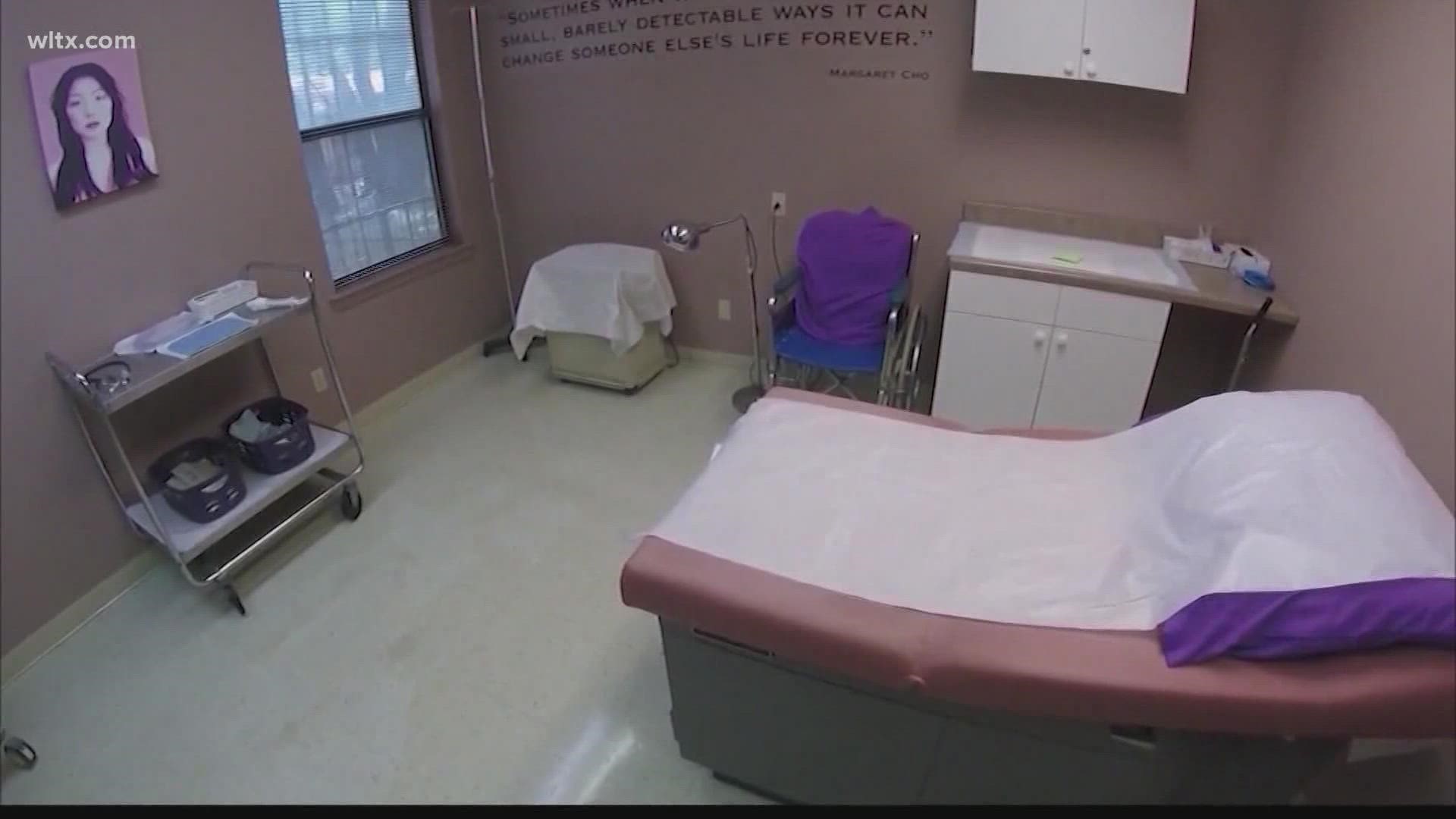COLUMBIA, S.C. — A new bill introduced in the South Carolina Senate seeks to ban abortions with few exceptions, going even further than the new Fetal Heartbeat Act that took effect Monday.
The "Equal Protection at Conception - No Exceptions" act would outlaw abortions at any stage of pregnancy unless the mother's life is at risk. It was introduced by Sen. Richard Cash of Anderson County, as some state lawmakers consider even stricter limits on abortion in South Carolina.
The move came days after the United States Supreme Court overturned the landmark Roe v. Wade ruling, ending nearly 50 years of federally guaranteed access to abortion.
The ruling opened the doors for individual states to make their own laws pertaining to abortion. South Carolina State Senator Richard Cash saw this as an opportunity to propose a new bill that would outlaw abortion in the state.
"Those who are pro-life are tuned in to what has happened, and they want something done in our state to stop the killing of unborn babies just as soon as possible," Cash said.
Cash and two other state senators, Rex Rice and Daniel Verdin, authored Senate Bill 1373.
Under this new law, many abortion services would be illegal. The bill states that any abortion that doesn't result from the mother's life being in immediate danger would be outlawed. In the case that a fetus dies during a procedure, the physicians would be required to document the event or face having their licenses revoked from a medical board.
Additionally, those looking to help mothers get an abortion could be penalized. The bill says it is illegal to conspire with someone to procure an abortion or give information about when and where someone could get an abortion. Also, drugs that cause abortions would also be illegal.
Meanwhile, Vikki Ringer with Planned Parenthood in South Carolina describes her week following the overturn of Roe Vs Wade as a difficult one. "It has been an exhausting week. Nothing has been a surprise but yet for most of the public, all of this is brand new."
Ringer and her colleagues say they saw the Supreme Court's decision coming and were disappointed when it finally got passed down. "Taking away an abortion is taking away a right for the woman to protect her own body."
Jim Robinson, of counsel with Fenno Law and professor at the University of South Carolina, says the language in the bill could potentially infringe on First Amendment rights.
"There's language in this bill about aiding and abetting an abortion and to the extent it would be applied to speech saying , ‘hey you can go to state X and get an abortions', that would be problematic from a first amendment perspective."
He says that the public has a right to share information about abortions, even if someone provides information about locations outside of the state. He adds that there are laws protecting people from travelling between states without issue.
RELATED: 'A step backward': Most Americans disapprove of overturning Roe v. Wade, CBS News poll shows
"If this law passed, it wouldn’t be impossible for it to be enforced but in the long run whether it would be held unconstitutional and therefore not able to be enforced that’s really the question."
Robinson adds that portions of the bill that hint at conspiracy would also struggle to hold up in a court of law.
"You’re committing conspiracy because you’re giving out information to commit abortions. But courts have rejected those kinds of prosecutions of speech."
Robison also thinks this is an important time where the First Amendment is need.
"Speech, including speech that goes against government policy is what the first amendment is all about."

